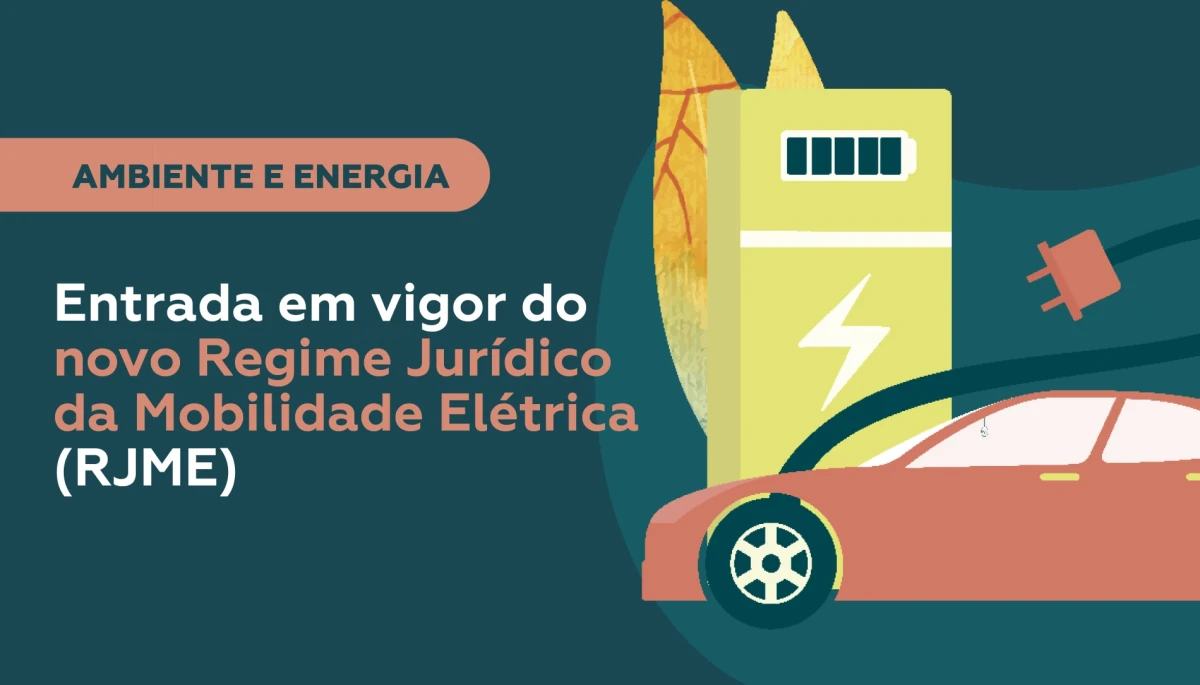
Entry into force of the new Legal Framework for Electric Mobility (RJME)

The new Legal Framework for Electric Mobility (RJME) (Decree-Law no. 93/2015, of August 14) comes into force, replacing Decree-Law no. 39/2010, of April 26, and introducing structural changes in the functioning of the electric mobility network in Portugal. It directly impacts the way electric vehicle users access charging services.
The purpose of the new framework is to promote competition, price transparency, and to boost electric mobility, ensuring universal access to charging points and giving electric mobility new momentum to meet the evolving challenges of the market and its consumers.
Key updates include:
1. Price transparency and competition
- Users will now know in advance the amount they will pay for charging.
- Standardization of energy measurement units to make it easier to compare prices between different operators.
- Mandatory competition mechanisms (namely, public tenders) are introduced for the allocation of new charging points in concessioned or sub-concessioned areas.
- The licensing requirement for operating electric vehicle charging points may be waived by ministerial order from the Government member responsible for energy, whenever technical requirements do not justify it. In such cases, operators will only be required to submit prior notification.
- New rules are established for electric charging of vessels.
2. Simplification of payment methods
- Charging can now be paid for directly at the charging point using a bank card (for more than 50 kWh) or a QR Code, with clear price identification shown before charging begins.
- It is no longer mandatory to sign contracts with mobility operators to access the service.
3. Universality and freedom of choice
- All users can charge at any public network charging point, regardless of brand or operator, without the need for a prior contract with an electricity supplier.
- This openness reinforces electric mobility as a public interest service accessible to any driver.
4. Reduction of intermediaries and associated costs
- The obligation for a single centralized management platform is eliminated. This removes the need for a centralized structure to handle financial and energy flows, which until now was managed by the Electric Mobility Management Entity (currently MobiE). Service providers for electric mobility will now be able to establish their own charging point networks without mandatory connection to a common network, while still guaranteeing universal access to all public charging points.
- The role of the Electric Mobility Supplier (CEME) is abolished, removing an intermediary from the process and reducing costs for users. Charging services will now be provided through direct access to the electricity market.
- By eliminating steps in the charging process, additional fees are reduced, simplifying the user experience.
5. Sustainability
- Authorization for issuing individual carbon credits for charging carried out with 100% renewable electricity.
- Introduction of charging functionalities powered by renewable energy produced under self-consumption schemes.
With these changes, the RJME seeks to ensure a more efficient, transparent, and competitive model, encouraging the use of electric vehicles and contributing to Portugal’s national decarbonization and energy transition goals.
The RJME entered into force on August 19, 2025, with a transitional regime in place until December 31, 2026, to safeguard a smooth transition between the two frameworks.



